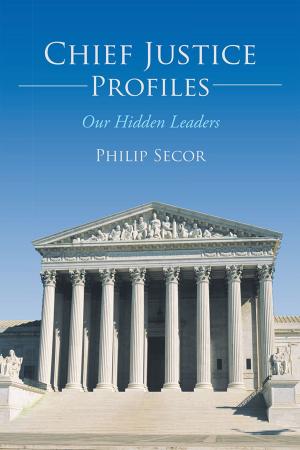Kierkegaard’S Existentialism
The Theological Self and the Existential Self
Nonfiction, Religion & Spirituality, Philosophy, Existentialism, Biography & Memoir, Philosophers| Author: | George Leone Ph.D. Th.D. | ISBN: | 9781491743607 |
| Publisher: | iUniverse | Publication: | November 18, 2014 |
| Imprint: | iUniverse | Language: | English |
| Author: | George Leone Ph.D. Th.D. |
| ISBN: | 9781491743607 |
| Publisher: | iUniverse |
| Publication: | November 18, 2014 |
| Imprint: | iUniverse |
| Language: | English |
Of all the philosophers in the vast and varied history of philosophy, Soren Kierkegaard alone concentrated on describing how it was that one became a self. In Kierkegaards Existentialism, Dr. George Leone describes what it means to become a self as exemplified in the life and writings of Kierkegaard.
Leone discusses how from the beginning Kierkegaards main concern was to examine what it meant to be a self within the Christianity of his day. In the process, he developed what came to be known as existential philosophy/theology. In his mind, these two are joined together through the two personalities most associated with each discipline, Socrates in philosophy and Jesus in theology. Kierkegaards Existentialism examines the development of Kierkegaards thought as it moves toward the two forms of selfhood that Socrates and Jesus personified.
Providing a deeper understanding of Kierkegaards philosophy, Leone shows how the existentialism Kierkegaard created centers on the self as the central theme of human concern. The self is that core of human life that is the most crucial element of existence, even more than the attainment of wisdom, salvation, or love. Kierkegaard, more than any other philosopher or theologian, had such an original and far-reaching insight into the nature of the concrete existence of the self that he has become more than relevant in todays world.
Of all the philosophers in the vast and varied history of philosophy, Soren Kierkegaard alone concentrated on describing how it was that one became a self. In Kierkegaards Existentialism, Dr. George Leone describes what it means to become a self as exemplified in the life and writings of Kierkegaard.
Leone discusses how from the beginning Kierkegaards main concern was to examine what it meant to be a self within the Christianity of his day. In the process, he developed what came to be known as existential philosophy/theology. In his mind, these two are joined together through the two personalities most associated with each discipline, Socrates in philosophy and Jesus in theology. Kierkegaards Existentialism examines the development of Kierkegaards thought as it moves toward the two forms of selfhood that Socrates and Jesus personified.
Providing a deeper understanding of Kierkegaards philosophy, Leone shows how the existentialism Kierkegaard created centers on the self as the central theme of human concern. The self is that core of human life that is the most crucial element of existence, even more than the attainment of wisdom, salvation, or love. Kierkegaard, more than any other philosopher or theologian, had such an original and far-reaching insight into the nature of the concrete existence of the self that he has become more than relevant in todays world.















